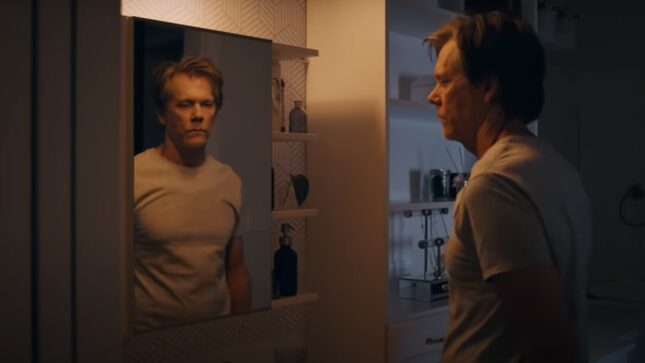

Understanding what a society fears goes a long way toward understanding what it values, and horror movies have long served as a funhouse mirror, distorting and reflecting our collective cultural hangups. The subtext of The Exorcist is fear of single mothers producing godless teenage girls who grow into troublesome women, disrespectful of patriarchal institutions, and the brilliant but deeply flawed Silence of the Lambs is, at its heart, a movie just as much about workplace harassment and the ways we devalue women at every level of our culture as it is about cannibals or serial killers. The central, non-ghost conflict of Kevin Bacon’s newest horror movie, You Should Have Left, is a larger, timely question wrapped up in an aggressively average horror movie: How culpable should men feel right now?
The film reunites Bacon with Stir of Echoes director David Koepp and focuses on a theme touched on in Echoes and another Koepp film, Secret Window: It’s possible for regular men to also be bad men. In You Should Have Left, 62-year-old Bacon plays the jealous husband of an actress played by 35-year-old Amanda Seyfried. Bacon’s character is some sort of rich banker who was tried and acquitted for killing his first wife. Seyfried is maybe cheating on him but also thinks the dead wife murder mystery is hot. An early scene proves that they still fuck. Two subsequent scenes prove that Kevin Bacon’s abs are still very good, which combined with the wealth seems to signal to the audience that this pairing is fine and not weird. But it’s impossible to look at a couple with a nearly 30-year age gap and not wonder what is really going on.
Spoilers ahead.
Bacon’s character, Theo, seems to agree. His wife is always texting; he’s left off the call sheet on a film set in which she is faking an orgasm so loudly one can hear it in the parking lot. Their marriage is weird. To combat his old husband cuck-centric paranoia, the pair take their small girlchild from their perfectly serviceable Los Angeles mansion to a more remote, creepier mansion in Wales, which, on the outside, looks like the standard, heavily-windowed concrete block favored by the wealthy and vaguely techy in movies. But inside, narrow brick hallways claustrophobically ensconce tastefully bland midcentury modern decor, reflecting a second collective cultural fear: What if a hyper-modern looking, very expensive house didn’t have an open floor plan? The separate rooms would probably not only seem small but the sheer presence of doors, rooms, and corners would probably invite ghosts.
-

-

-

-

-

-

-

-

-

-

-

-

-

-

-

-

-

-

-

-

-

-

-

-

-

-

-

-

-

-

-

-

-

-

-

-

-

-

-

-








































